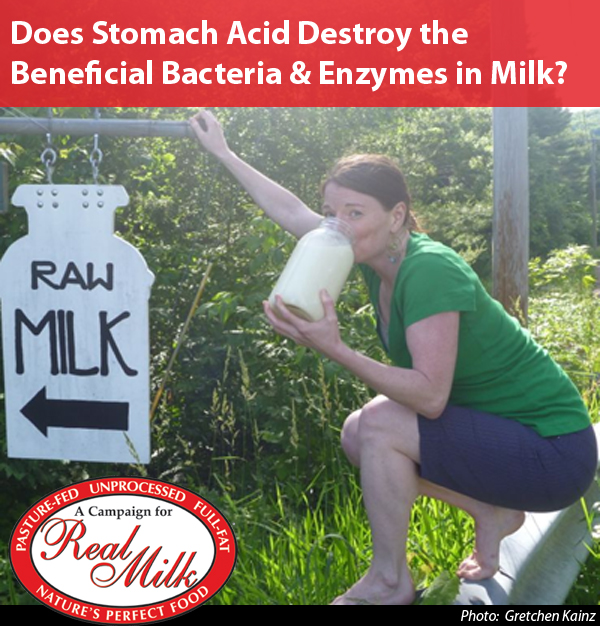Estrella Family Creamery, Washington
December 1, 2010A Tale of Two Calves
December 10, 2010Proponents of pasteurization have stated that it doesn’t matter whether enzymes get destroyed during pasteurization because stomach acids would destroy them anyway. We asked Ted Beals, MD, for his input on this question.
According to Dr. Beals, enzymes are indeed sensitive to changes in pH, that is, to the acidity or alkalinity of the environment. With extreme changes, the enzymes might be damaged or destroyed. Any mild change in pH either up or down will also affect the activity of an enzyme. Different digestive enzymes work better in lower pH while others at higher pH. Thus it seems logical that the acidic environment of the stomach would diminish or destroy the ability of enzymes to function. But this is offset by the fact that fresh whole milk is a buffer, that is an agent that keeps the pH steady. (Pasteurizing, homogenizing and reducing the fat content of milk all reduce the buffering capacity.)
Buffers “neutralize” the alkaline or acid environment that comes into contact with the milk, reducing the influence of the acidic or alkaline environment on the milk. After all, breast milk contains many of the same enzymes as milk from cows or goats, and these enzymes play many beneficial roles in the digestive tract. It would not make biological sense to have these enzymes in the milk, only to be destroyed by the acid environment of the stomach or the alkaline environment of the small intestine.
Dr. Beals also points out that raw milk does not contain lactase, the enzyme that breaks down the disaccharide lactose. However, beneficial bacteria enter the milk as it is exiting the teat into the milk container. These bacteria may produce free lactases and they may convert lactose by their own internal metabolism. The buffering capacity of raw milk would allow these healthy bacteria to enter the small intestine where they can continue their work of digesting lactose. Such bacteria also contribute to the overall health of the intestinal tract. Raw milk contains several factors that support the proliferation of these bacteria, including bifidus factor and special sugars that serve as food for the bacteria. As with enzymes, it does not make biological sense for all these factors to be present in raw milk only to have them destroyed in the stomach.
[include content_id=643]


